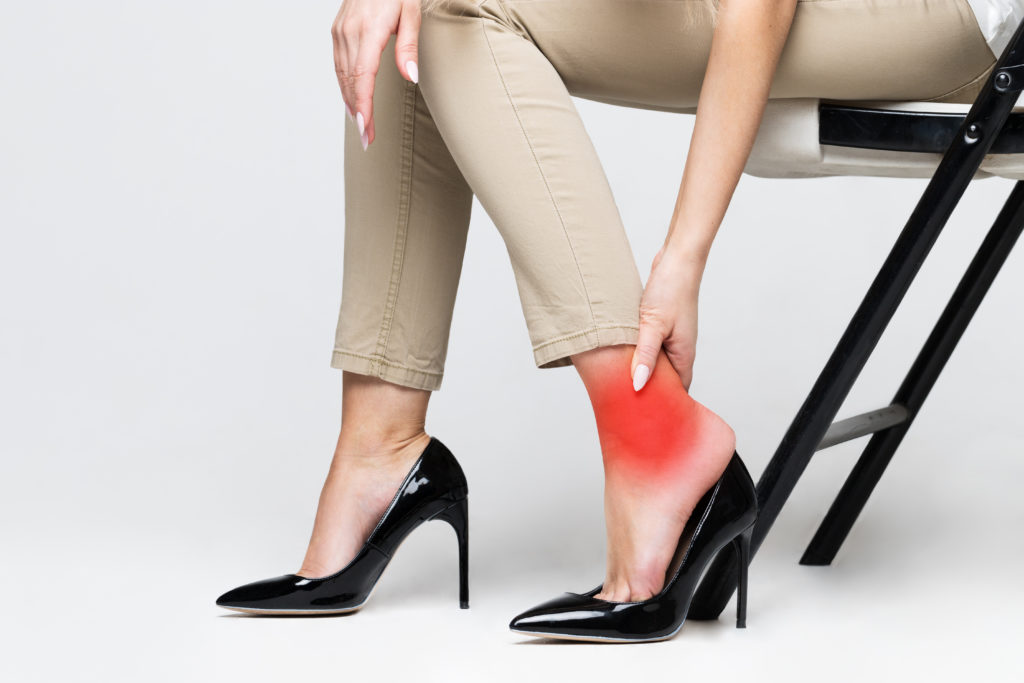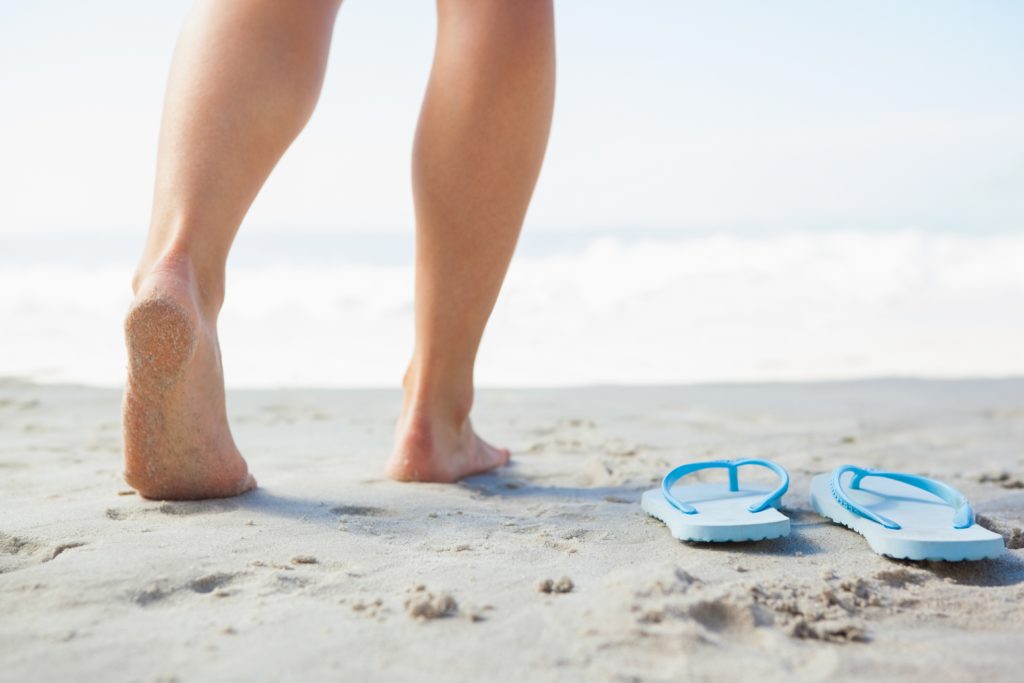We’re all familiar with that rush of excitement we get when we slip into our favorite flip flops or sandals when the weather warms up. Taking your feet for a breezy spin around the block sounds fun and relaxing, but did you know that most slip-on shoes are actually bad for your feet?
Here are some of the most common problem causing shoes that bring many of our patients in with foot and ankle issues during the warmer seasons:
Shoe:Flip flops
Most common problem they cause: Plantar Fasciitis/heel pain.
Why? When a shoe does not offer enough, or any, arch support, like most flip flops, the fascia ligaments in the foot are also not supported, which causes the muscle and tissue to overstretch. This is ultimately what causes pain in the heel. The name says it all: these shoes flop more than support, and it’s best to use them seldom, especially when going for longer walks.
Suggestion: The general rule of thumb is to go with shoes that offer little to no flexibility in the arch. Forgoing that cheap pair of flip flops from the drugstore and investing in a pair of well-made, arch-supporting flips could benefit you in the long run.
Shoe: Wedges and Stilettos
Most common problem they cause Achilles tendon/heel pain.
Why? These types of footwear are tricky. The tall height of the heel causes your Achilles tendon to shorten, preventing the muscles in the foot to relax and stretch. Wearing wedges also makes your foot and ankle less secure than it actually feels like, posing a risk for an ankle sprain or developing Achilles tendon pain.
Suggestion: If wedges are your thing and you must include them in your wardrobe, opt to wear ones with a heel height of no more than 2 inches. Make sure to also give your Achilles a nice stretch after wearing them for an extended period of time.
Shoe: Slip-ons
Most common problem they cause: Overall foot, ankle and leg pain.
Why: Slip-on shoes (think Crocs) seem convenient since they’re easy to slide in and out of.
But any shoes that allow your feet to slide around without providing adequate structural support aren’t good shoes. When your foot moves around in your shoe, your ankle and leg end up doing most of the work for your foot, which can result in chronic foot and ankle pain – even extending to the leg sometimes. Some people complain of lower back pain as well.
Suggestion: The nice part about slip-on shoes or slides is that if you get the right kind, these can be totally ok to wear. The key thing, as mentioned earlier, is going with a shoe that has solid arch support so your foot stays in place, especially with slides since the back part of the shoe is missing.
Shoe: Flat sandals
Most common problem they cause: Plantar Fasciitisand Achilles Tendon pain.
Why: One of the biggest caveats of flat sandals is that they look and feel safe since most styles have straps. However, the more fashion-focused the sandals, the less likely they’ll be orthopedically-friendly, regardless of having straps. Most men’s and women’s sandals, again, lack sturdy support and are too flexible at the arch, posing a risk for plantar fasciitis. It is important for your foot to stay within the footbed of the shoe and for there to be as little foot movement as possible, so your feet aren’t overworked throughout the day.
Suggestion: Choose sandals with adequate foot and ankle support with a sturdy structure that isn’t too flimsy, so your foot stays in place when you walk. Rubber-soles can also help lessen the risk of spraining your ankle if you slip or take a wrong step.
As always, if your feet are hurting for any reason, make sure to call our Evanston office – Evanston Podiatric Surgeons at 847-475-9030, or Downtown Chicago office – Mag Mile Foot and Ankle Institute at 312-236-3507. Our care options for foot injuries and pain include some of the most cutting-edge procedures and technologies available!

